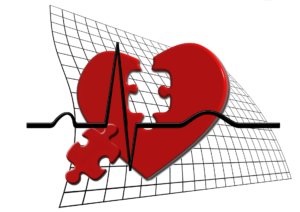
The unhealthy lifestyles of many Americans today are catching up with them and then some. Not only are cases of obesity and type-2 diabetes in children and adults skyrocketing, but so are cases of fatal heart disease. As we explained in our previous article on this topic, heart disease is now the leading cause of death in the United States. That is awful, and our health care system is trying it’s hardest to fight against cardiac diseases. We want to join in on that fight as well, which is why we are delving back into the topic of preventing heart disease.
In our last article, we talked about how you can mitigate your risk of cardiac disease by not smoking, losing weight, and keeping low stress levels. Those methods are among the most important things you can do, but they are not the only things you should be doing. With that in mind, let’s start with how you should have good blood sugar.
1. Maintain Good Blood Sugar
This tip goes hand in hand with lowering your risk of weight gain and type-2 diabetes. A high level of blood sugar often correlates with a high BMI index, and by extension, type-2 diabetes, which can cause heart disease.
If you have healthy blood sugar levels and keep it that way, you’ll be doing your heart a significant favor.
2. Don’t Have High Blood Pressure

The importance of avoiding excessively high blood pressure isn’t as suggested as much as losing weight or not smoking, but it’s still important to keep in mind if you want to avoid heart disease. High blood pressure can stem from a bad diet, drug use, and high levels of stress, and it results in badly damaged blood vessels.
You put yourself at a high risk of a stroke or heart attack if you don’t take steps to mitigate a high blood pressure.
3. Have Good Levels Of Cholesterol
Another big concern is the amount of “bad” cholesterol, or LDL cholesterol, that is in your blood vessels as a result of a bad diet and poor overall lifestyle. If you have a high level of LDL cholesterol, then your blood vessels will be clogged, which puts you at a higher risk of a heart attack.
If you are aware of what your LDL cholesterol levels are, then you can make the appropriate steps to adjust them accordingly.
Conclusion

Having any kind of heart disease is not a pleasant experience for anyone, and we certainly don’t want our readers to suffer. Please heed the advice in this article.

